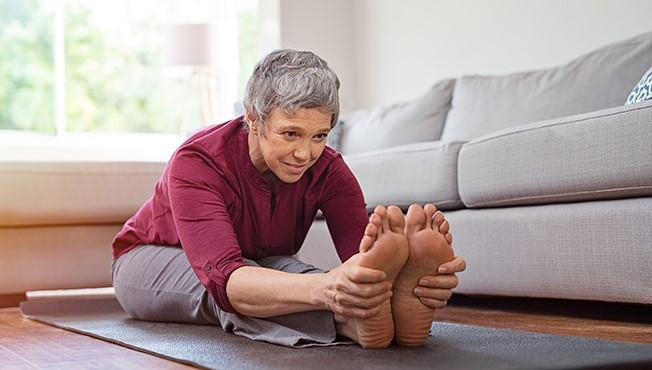10 Mental Health Tips for Professionals Working from Home
Even before the coronavirus, data from a US census showed about 5% of workers in the US worked from home in 2017. Sounds small, but that’s about 8 million people.
Now, with most of the world temporarily working from home and for some, permanently, it’s important we recognize the toll this transition can take on our mental health. Sure, you can sleep in, make your own hours and stay in your pjs all day, but although your body might love it, your brain…not so much.
The side effects of working from home, if we aren’t careful, can have a drastic effect on our health leading to depression, fatigue, weight gain, etc.
Not everyone is created equal. Some humans need an adequate amount of social engagement and activities, while others not so much. The other concern is the lack of fresh air and getting outside.
There's a lot of health concerns that can accompany remote jobs if performed incorrectly. Follow these practices for maintaining your health in order to combat the work-from-home blues.
1. Deep breathing exercises
Whether or not you call it meditation, taking a few minutes out of your day to practice deep breathing is essential to your health. The benefits of taking deep breaths are boundless!
- Stress management and lowering your stress hormones
- Puts your body back into repair mode
- Lowers blood pressure
- Improves ability to adapt to stress
- Gives you a moment of stillness and peace!
- Breaks up and releases toxins in your lungs
I could keep going! It also aids with depression and sedentary lifestyles by adding some movement into your body.

2. Getting outside in nature
Whether you’re working from home or in the office, getting outside into nature, again, comes with a list of benefits.
-
It acts as a reset for your brain and gives you a memory boost
-
Stimulates your happy hormones!
-
Promotes weight loss and encourages exercising
-
Gives you your daily vitamin D (depending on the time spent outside)
-
Boots your immune system and overall health
Beside the obvious, getting outside decreases the feeling of depression. Our bodies were meant to be in nature, not stuck indoors away from natural light.
Nature is a friend to our mental health and there are numerous studies out there showing that a simple walk in the park can improve mental health.
3. Finding support groups or staying connected online
Right now, we’re stuck indoors, but thankfully we have technology. Online lives a variety of communities, support groups, online chats, etc.
As humans we are meant to be social. So, if you can’t participate in social hour after work, get online and find some humans on there. It’s important for your health to form connections and relationships when possible.
Social connections can lower your feeling of depression, isolation and anxiety as well as support self-esteem. Although an online relationship isn’t as strong as an in-person one, it will have to do for now.
4. Using natural medicine
Whats the best form of medicine?
Plants of course!
Natural medicine is the best cure for the work-from-home blues and depression. Remember how we talked about staying connected?
We are also talking about nature and mother earth. We are so disconnected from the trees and plants that surrounds us and don’t even realize how beneficial they can be.

For example, the herb Saffron is a powerful spice used to treat mild forms of depression whether your including it in your food or simply smelling it.
We are all familiar with the magical effects lavender has on our stress and anxiety levels. Drinking lavender tea or diffusing it using essential oils - the scent online can ease anxiety.
Don’t forget about food! Nature's natural medicine we love to consume. Serotonin, also known as the happy hormone, contributes to our happiness. So why not eat a diet rich of serotonin enhancing foods like wild salmon, coconut oil, free-range turkey and walnuts?
5. Exercising
It’s time to get moving!!
Movement is something that we deprive the body of that it desperately craves. Specifically for our mental health, exercise acts as a form of elimination and releases different stress hormones we have locked in our bodies.
Sweating it out, whether it’s an hour of intensity or 30 minute yoga session, is just what the doctor ordered if you’re experience mild depression from being locked up at home.
6. Essential oils
Aromatherapy is the use of plant oils and extracts in baths, diffusors, and incorporating them into other products. These oils may smell great, but are also packed full of health promoting properties.
Here are some of the best oils for common symptoms when working from home, brought to you by Healthline:
Essential oils for depression: Bergamont, neroli, grapefruit
Essential oils for feeling sad or isolated: Rose, palo santo, marjoram sweet,
Essential oils for stress and anxiety: Lavender, ginger, sweet orange, jasmine, sandalwood, ylang ylang

7. Let natural light into your workspace
Open the drapes or create a workspace centered around natural light instead of using artificial lighting. Natural light is fundamental to our health, specifically because our bodies needs vitamin D to function. Natural lighting is also accepted easier by our eyes versus artificial lighting.
Being close to light also means you’re closer to nature and might have an area that looks out into nature when giving your eyes a break.
8. Bring plants into your at-home office
Again with the nature we get it!
This is how important being connect to the earth is to our health. If we can’t get it enough outside, we need to bring it inside with us. There are a variety of plants that actually thrive indoors you can use to decorate your office with. Place cute succulent bowls on your desk, hang some pots, and get a big office plant to complete the look.
Now, you have a stylish work-from-home office that looks amazing and radiates the beneficial plant power your body and mind craves.
9. Yoga/stretching
Yoga is highly recommended for sedentary lifestyles and desk jobs because it can awaken the stiff joints and promote healthy circulation. You can also get a good sweat on encouraging the release of nasty stress hormones and boost your immune system.
While people who participate in yoga daily see a lot of physical benefits, there are also quite a few mental benefits too.

If you’re dealing with depression or feeling lonely, yoga allows you to take a breath and build a better outlook on life. It also stimulates brain clarity, self-awareness and calmness within the body. Everybody needs a little yoga in their life.
10. Get social after work (if you can)
We touched a little on building social connections, however, with the current pandemic, we are bound to our homes forced to practice social distancing.
I still think it’s important to capitalize that, once COVID-19 is over, you need to get out of the house and start interacting with others. Find people with similar interests and hobbies you can engage in together.
It will help break up being trapped indoors and add more value to your life. Trust me, you’ll feel it!
BONUS: Get yourself a planner or big calendar!
For those visual learners out there, get a planner, notebook or anything to write out your daily to-do lists. Getting your thoughts on paper and seeing it in front of you, is a fast way to release any anxious feelings you may have. There’s something about taking these thoughts out of your mind and capturing them on paper that provides clarity to your brain.






